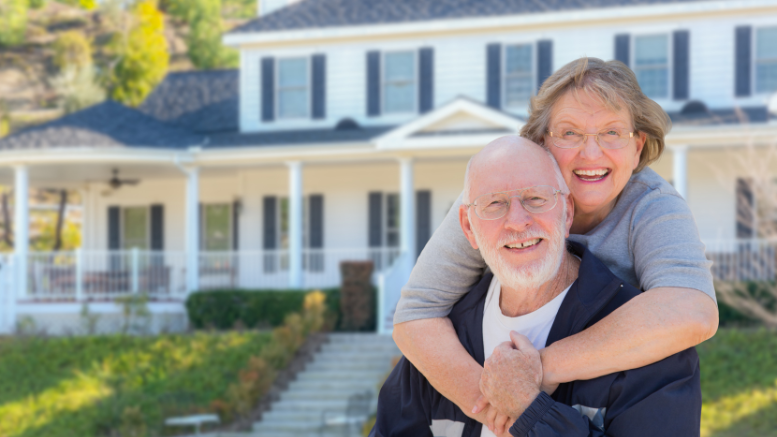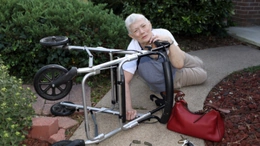How To Choose The Right Housing For Seniors: A Complete Guide

We enter old age, and our lives alter. Choosing a befitting facility to accommodate an elderly relative is an important course of action that can severely affect the quality of life, independence, and health of the senior relative.
This will help them remain at home with little support or move to permanent care homes that have different options based on the needs of the individuals, physically, emotionally, and socially.
Families can locate appropriate housing with proper information and planning that would offer a balance between convenience, safety, and care.
To do this, this guide will explain the different kinds of senior housing options that exist today and the major considerations you have to pay attention to before deciding.
Understanding Senior Housing Options
The housing for seniors does not have a universal solution. Needs are relative according to health, mobility, independence, and preferences. The most typical forms of senior housing are listed below:
- Aging In Place: A large number of elderly people want to remain in their homes as long as they can. This may be a good option with the assistance of family, home health aides, and modification of homes (such as grab rails or stair lifts) when the needs are manageable.
- Independent Living Communities: These are the communities that would suit the active older adults who do not require medical attention on a daily basis. They provide individual apartments or cottages and facilities such as group dining, social life, and housekeeping.
- Assisted Living: These offer personal services, like bathing and dressing, and medication administration, but they stimulate independence. Food, activities, and 24-hour staff are usually provided.
- Memory Care Clinics: Developed exclusively for persons with Alzheimer's or dementia, these units provide a closed system that has a designated staff to attend to their needs, as well as provide psychiatric activities.
- Nursing Home (Skilled Nursing Facilities): Nursing homes offer around-the-clock nursing care and rehabilitative care to seniors whose needs are serious and who can hardly move.
- Continuing Care Retirement Communities (CCRCs): CCRCs provide a continuum of care alternatives, including independent residences and skilled nursing that are positioned within the same location, which means that as a resident, one can seamlessly move across other developments.
Key Factors To Consider When Choosing Senior Housing
Here are the most important factors you need to consider when choosing senior housing:
Level Of Care Required
The first and the most significant one is the medical and personal care requested by a senior:
- Minimal Support: Seniors with major independence may do well living in independent living or aging in place most of the time with a modicum of assistance.
- Moderate Support: In case of the kind of assistance needed in the day-to-day activities of bathing or administering medicine, then a more appropriate environment would be an assisted living facility.
- Advanced Care Needs: Chronic illnesses, additional cognitive concerns, and any physical mobility complications may require seniors to seek memory care or professionally equipped facilities offering nursing care.
Before making the housing decision, it would be wise to refer to a geriatrician, primary care physician, or elder care expert to get a comprehensive needs analysis.
Budget And Financial Planning
The prices of senior housing facilities may differ tremendously:
- Aging in Place: It includes in-home caregivers, home modification, and medical equipment. These are usually out-of-pocket unless long-term care insurance or Medicaid (where available) reimbursement is obtained.
- Independent/Assisted Living: It is monthly and again is variable depending on the area and facilities, but usually starts between $2,000 and $6,000+ a month.
- Memory care or nursing homes: These may be up to $6,000 to 10,000 or more each month.
You have to take into account:
- Benefits of long-term care insurance
- Benefits available to veterans (Aid and Attendance)
- Medicaid eligibility
- Retirement income and personal savings
Payments can be structured through working with a financial advisor or elder law attorney to help explore benefits.
Location And Accessibility
Certainly, one of the priorities is being near the family and health services. Considerations to make when selecting a facility/type of housing:
- The frequency of the family member's visits or assistance that they may offer
- Transport distance to hospitals, drugs, and specialists
- Such things as safe walking routes, public transportation, or pension facilities in the community
There might be a weather and climate factor as well. Some of the seniors like hot weather to escape winter dangers and pressure on their joints.
Lifestyle Preferences And Social Opportunities
Housing needs do not only regard physical needs but also emotional welfare. Social isolation is quite an issue among older adults; thus, consider:
- Do they conduct frequent socialization or interest clubs?
- Does the community allow animals, in case the senior keeps a pet?
- Do you have a religious/spiritual service, in case you prefer it?
- Is it possible to ensure the senior the right to privacy without making him or her feel isolated?
There are seniors who possess a need to be independent and have their privacy, and there are those who enjoy an active group setting.
Facility Reputation And Licensing
All senior facilities do not have the same quality of containment. Before selecting a place to live, one should do serious research before making their decision:
- View state license and inspection reports at the local health department or the aging services website.
- Find out what residents and relatives are saying about the online reviews.
- Visit the facility and/or take an online tour to see how clean the place is, as well as how staff treat residents and the general atmosphere.
- Ask about: What is the ratio of staff to residents? Do employees need a background check? In what way do emergencies occur?
The major signs of a well-managed facility are transparency, its professional staff, and their kindness.
Conclusion
Moving into the right housing for seniors has more to do with comfort, but it is also related to safety, dignity, and peace of mind. By evaluating the need for care, budget, lifestyle, and the quality of facilities offered at a housing, families can make sound, humane decisions. It aims to make the living environment more supportive for the seniors to help them live fully at each level.






















